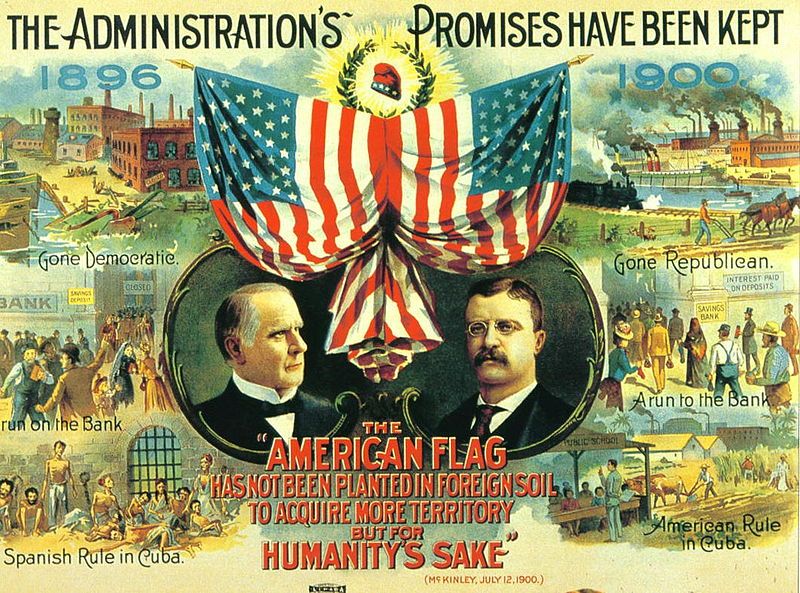
"This campaign poster for McKinley and Roosevelt advocates their re-election by contrasting the previous impoverished economic conditions of the United States with the prosperity brought about by McKinley's presidency." [11]
Through several communications--including exaggerated propaganda and yellow journalism--of Spanish imperialism and Cuban exploitation, the United States was depicted as the savior of Spanish colonies and creator of republics.

"This campaign poster for McKinley and Roosevelt advocates their re-election by contrasting the previous impoverished economic conditions of the United States with the prosperity brought about by McKinley's presidency." [11]
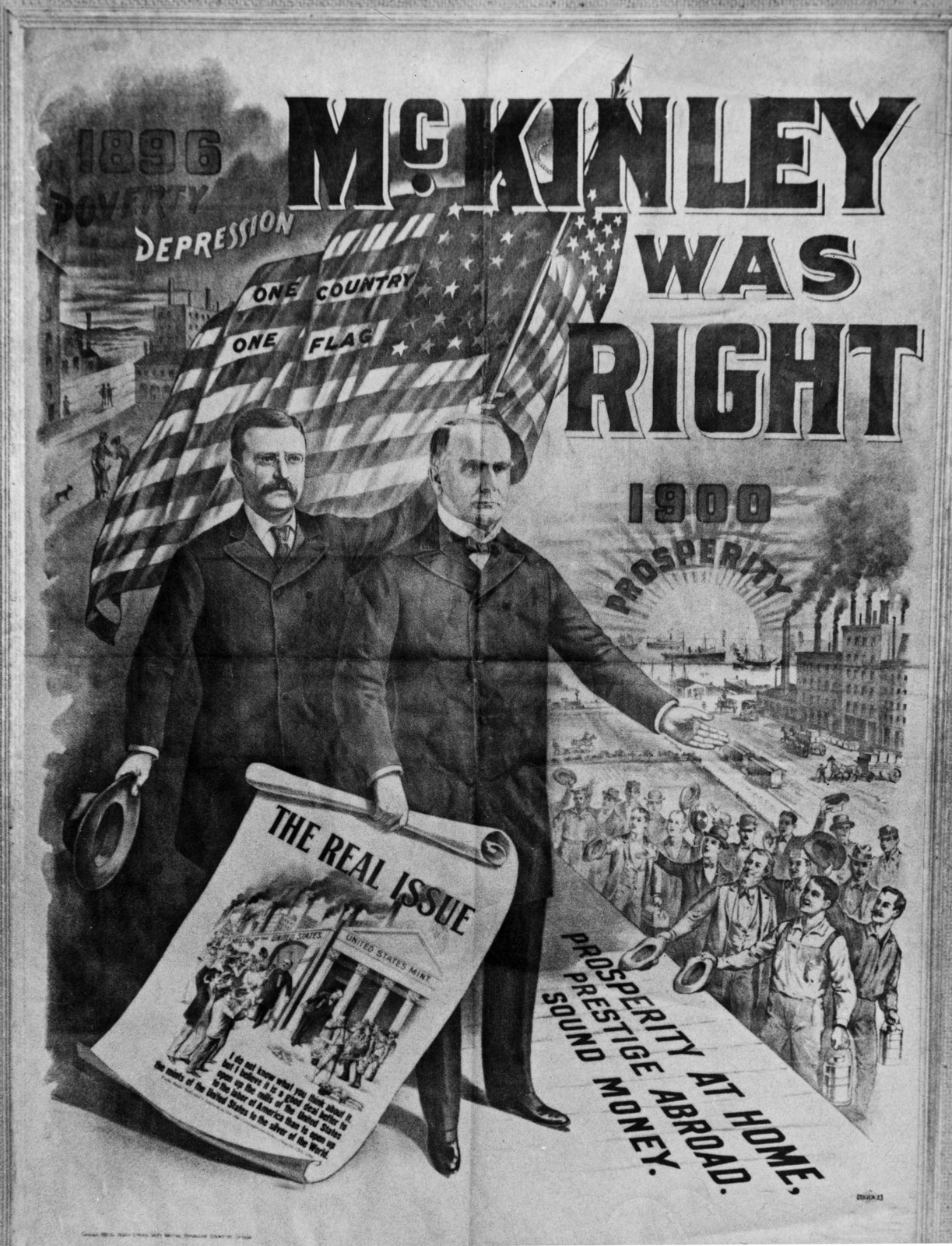
"William McKinley (holding broadsheet) with Vice Pres. Theodore Roosevelt in a campaign poster for presidential reelection in 1900." [12]
As a result of the sensationalistic propaganda portraying the Spanish-American War as the finale of the Imperialism Era, exiled Puerto Rican separatists had believed that the USA would liberate their island from Spain, as they "yearned" for Cuba. Instead, Puerto Rico was deemed a US territory under the Treaty of Paris.
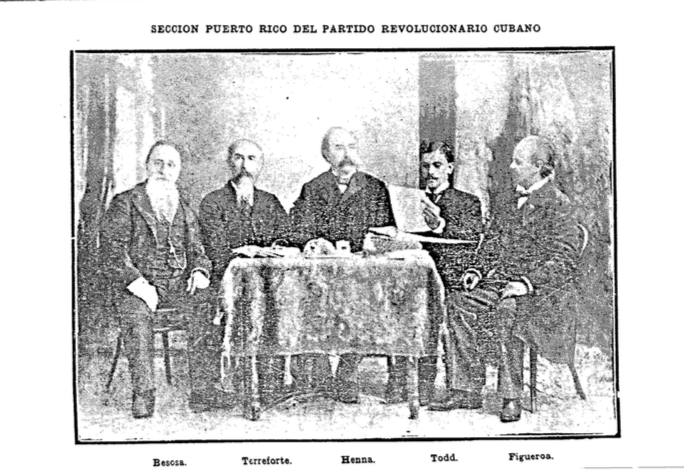
"[Puerto Rican Section Of the Cuban Revolutionary Party.]" [13]
"On March 10th, 1898, Dr. Julio J. Henna (leader of the Puerto Rican Revolutionary Committee) and Robert H. Todd, prominent leaders of the Puerto Rican section of the Cuban Revolutionary Party, began to correspond with United States President McKinley and Senate in hopes that they would consider including Puerto Rico in whatever intervention was planned for Cuba. Henna and Todd also provided the U.S. government with information about the Spanish military presence on the island." [8]
Click on the words Dr. Julio Henna and Puerto Rican Revolutionary Committee highlighted in blue/gray for more information.
Through this proclamation, the US miscommunicated with Puerto Rico by giving them the impression that the island would fully enjoy the "immunities... and liberal institutions" of the US government. Ironically, Puerto Rico had later become a US territory.
"Gen. Miles has issued the following proclamation: 'In the prosecution of the war against the Kingdom of Spain by the people of the United States, in the cause of liberty, justice, and humanity, its military forces have come to occupy the Island of Puerto Rico. They come bearing the banners of freedom, inspired by a noble purpose, to seek the enemies of our government and of your’s and to destroy or capture all in armed resistance. They bring you the fostering arms of a free people, who’s greatest power is justice and humanity to all living within their fold. Hence they release you from your former political relations and it is hoped this will be followed by your cheerful acceptance of the government of the United States... They have not come to make war on the people of the country, who for centuries have been oppressed; but, on the contrary, they bring protection not only to yourselves, but to your property; to promote your prosperity, and bestow the immunities and blessings of our enlightenment and liberal institutions and Government. It is not their purpose to interfere with the existing laws and customs which are wholesome and beneficial to the people, so long as they conform to the rules of the military administration, order and justice.'” [14]
In December of 1898, General "Brooke... changed the official name of the island to 'Porto Rico.'" [16] The name of the island--which shows its Spanish heritage--was changed to 'Porto Rico,' the English pronunciation of Puerto Rico, based on convenience.
Click on the word name highlighted in blue/gray for more information.
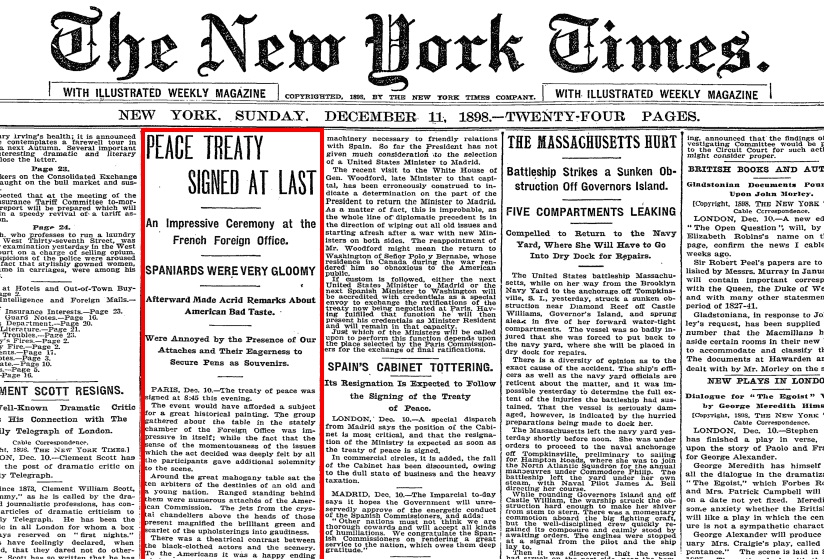
"PEACE TREATY SIGNED AT LAST. The New York Times." [17]
This treaty was a miscommunication. Instead of granting Puerto Rico autonomy on November 25th, 1897, Spain ceded the island to the US. After the US said they would liberate Puerto Rico from Spanish rule, they ended up making it their territory--a colony in disguise.
"Article II. Spain cedes to the United States the island of Porto Rico and other islands now under Spanish sovereignty in the West Indies, and the island of Guam in the Marianas or Ladrones." [18]
This act communicated that Puerto Rico didn’t have the same representation in Congress that states had. This goes against General Miles’s proclamation: “...to promote your prosperity, and bestow the immunities and blessings of our enlightenment and liberal institutions and Government.” [14] Nothing was mentioned, regarding the incorporation of Puerto Rico.
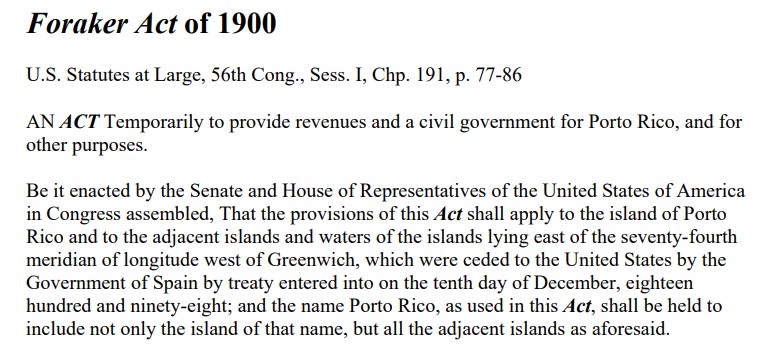
"Foraker Act of 1900." [19]
“On April 2, 1900, US President McKinley signed a civil law that established a civilian government in Puerto Rico. The new government had a governor and an executive council appointed by the President... a non-voting Resident Commissioner in Congress.” [20]
“The law established a colonial regime, administered by the U.S. President and the Congress, and designated the island an 'unorganized territory'; thus, while Puerto Ricans were not granted U.S. citizenship, those who swore loyalty to the United States would receive its protection... the Foraker Act was the first law to define Puerto Rico’s territorial status in the early 20th century.” [21]
The Insular Cases are a series of supreme court decisions communicating the reinstatement of Puerto Rico’s political status as a non-incorporated territory, through the utilization of racist slurs. In "DOWNES V. BIDWELL 182 U.S. 244", it was stated that Puerto Ricans couldn't comprehend the "Anglo Saxon principles." However, the USA later made an effort to integrate those English principles into the island.
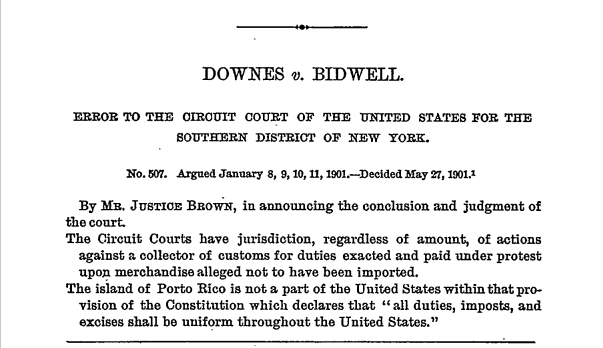
DOWNES V. BIDWELL 182 U.S. 244: “‘If those possessions are inhabited by alien races, differing from us in religion, customs, laws, methods of taxation and modes of thought, the administration of government and justice, according to Anglo-Saxon principles, may for a time be impossible; and the question at once arises whether large concessions ought not to be made for a time, that, ultimately, our own theories may be carried out, and the blessings of a free government under the Constitution extended to them. We decline to hold that there is anything in the Constitution to forbid such action.'” [22]
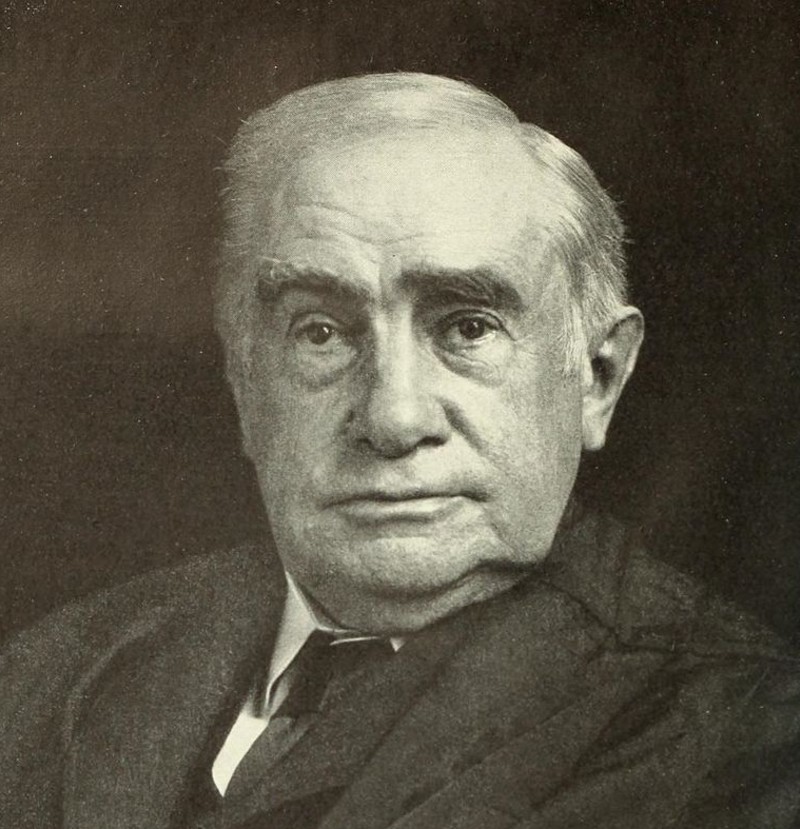
"Justice Henry Billings Brown, 1905." [23]
"...in Downes v. Bidwell, in which he declared that peoples of annexed territories were not entitled to constitutionally guaranteed rights and privileges." [24]
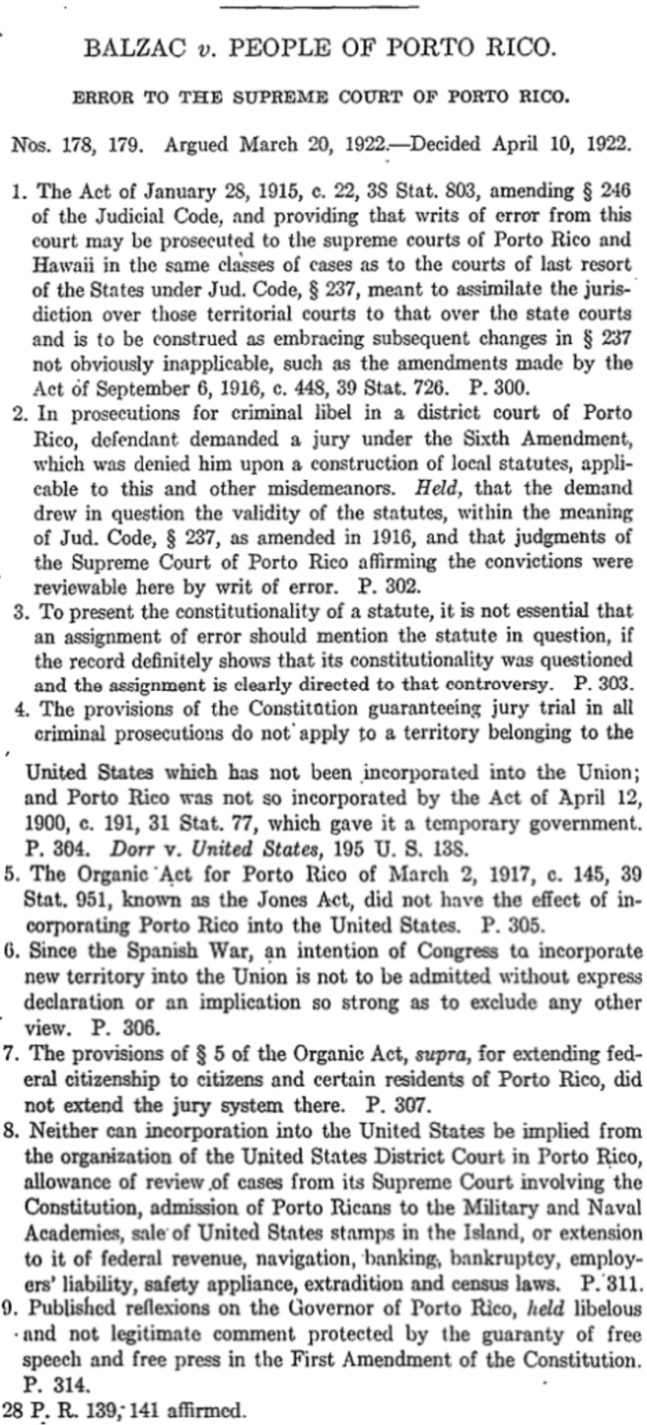
BALZAC V. PORTO RICO (258 U.S. 298, 1922): “‘unincorporated territories would receive “fundamental” constitutional protections... but not the full range of constitutional protections enjoyed by U.S. citizens... The provisions of the Constitution guaranteeing jury trial in all criminal prosecutions do not apply to a territory belonging to the United States which has not been incorporated into the Union; and Porto Rico was not so incorporated by the Act of April 12, 1900, c. 191, 31 Stat. 77, which gave it a temporary government." [25]
This case reinforced the Foraker Act.
This act served as a US miscommunication, for it maintained Puerto Rico's colonial structure and brought controversy regarding its political status, given the second-class citizenship of its people.
CHAP. 145, SEC. 5.: "That all citizens of Porto Rico, as defined by section seven of the Act of April twelfth, nineteen hundred, 'temporarily to provide revenues and a civil government for Porto Rico, and for other purposes,' and all natives of Porto Rico who were temporarily absent from that island on April eleventh, eighteen hundred and ninety-nine, and have since returned and are permanently residing in that island, and are not citizens of any foreign country, are hereby declared, and shall be deemed and held to be, citizens of the United States...”
145, 39 Stat. 951. [26]
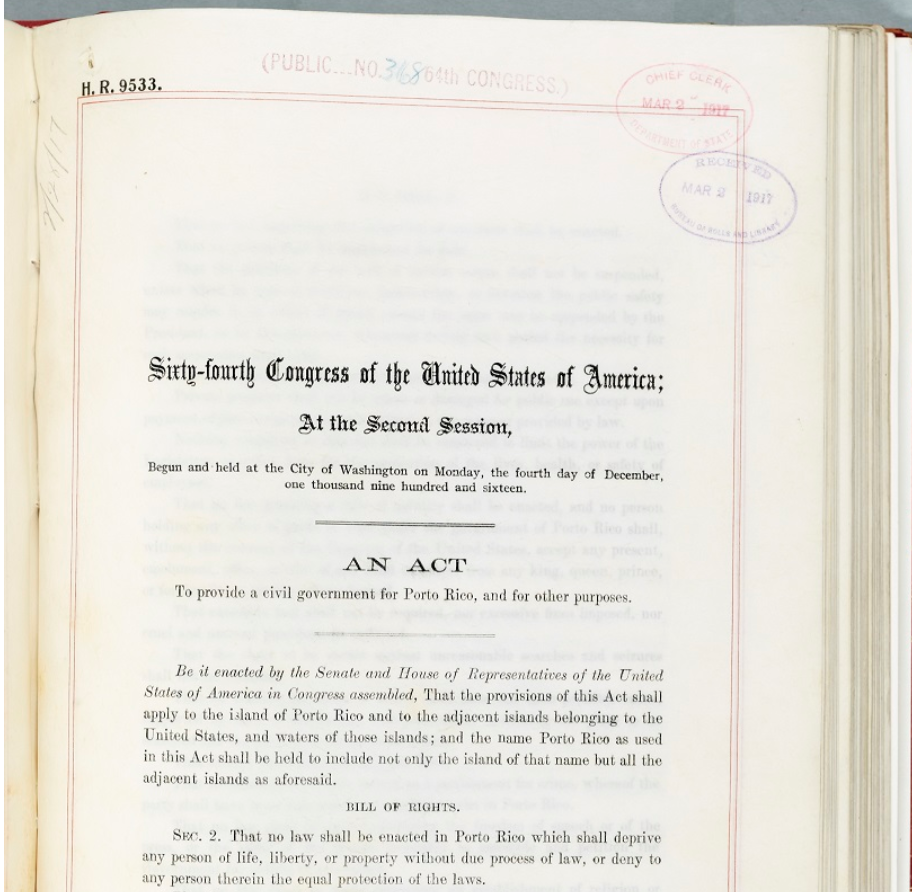
"Jones Shafroth Act of 1917." [27]
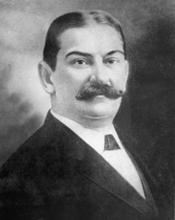
"After eventually endorsing the Jones Act on the House Floor, Muñoz Rivera proceeded to explain why many Puerto Ricans rejected it. 'My countrymen, who, precisely the same as yours, have their dignity and self respect to maintain, refuse to accept a citizenship of an inferior order, a citizenship of the second class, which does not permit them to dispose of their own resources nor to live their own lives nor to send to this Capitol their proportional representation,' he said." [21]
This constitution granted more autonomy to Puerto Rico’s government. This communication established Puerto Rico as a free associated state; neither a state nor an independent country.
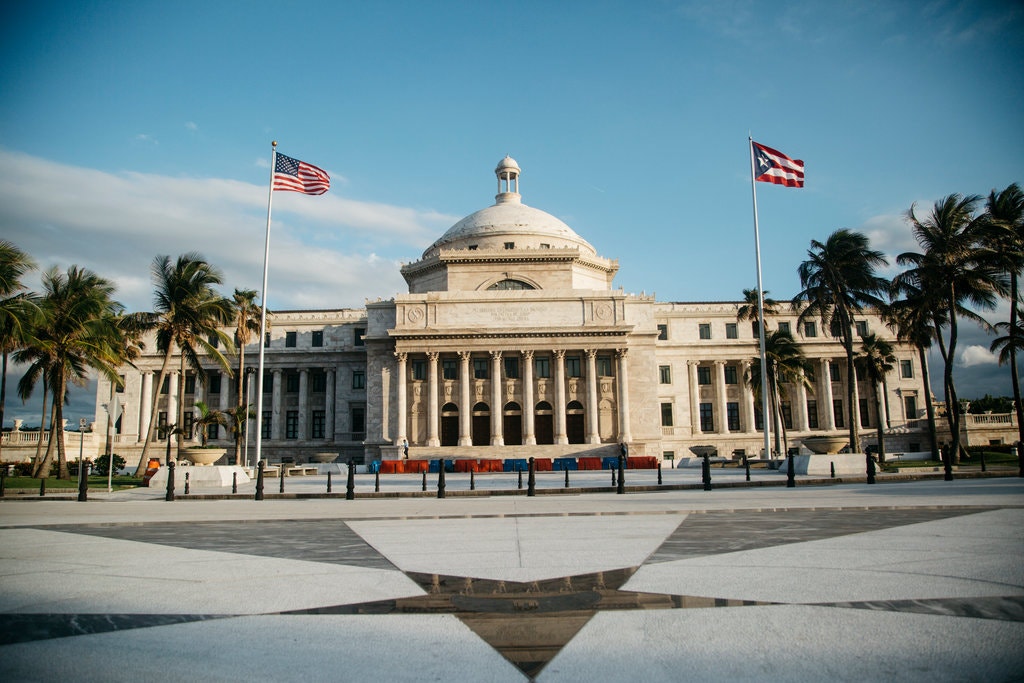
"The Capitol of Puerto Rico, in San Juan" [29]
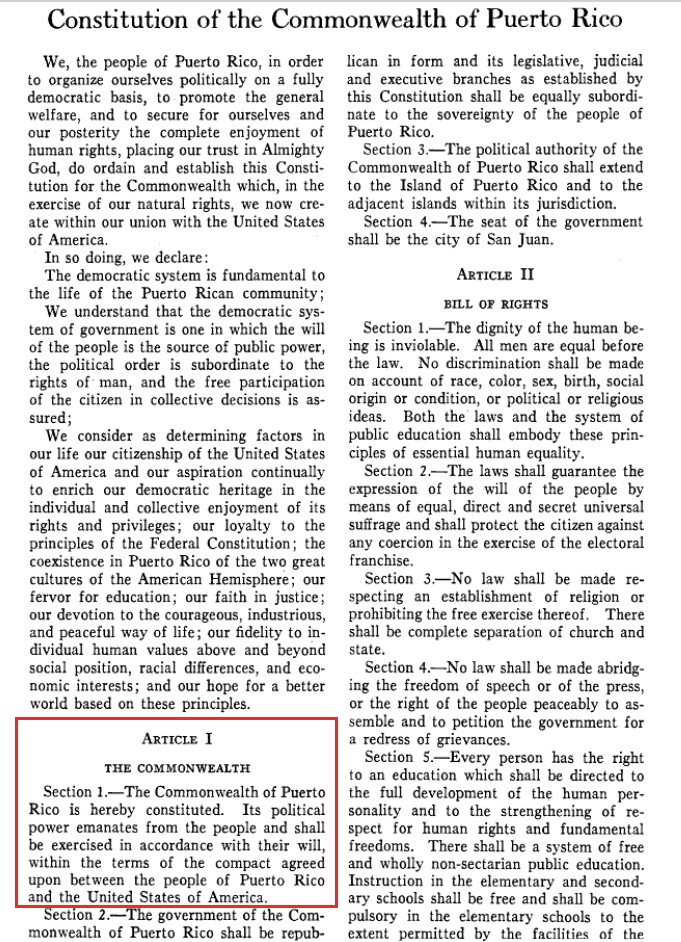
"Constitution of the Free Associated State of Puerto Rico" [30]
"Section 1. The Commonwealth of Puerto Rico is hereby constituted. Its political power emanates from the people and shall be exercised in accordance with their will, within the terms of the compact agreed upon between the people of Puerto Rico and the United States of America." - CONST. PR art. I, § 1
Joaquin Gonzalez : Junior Individual
Website : 1,147 | Process Paper : 498 | Multimedia : 3:46 Minutes